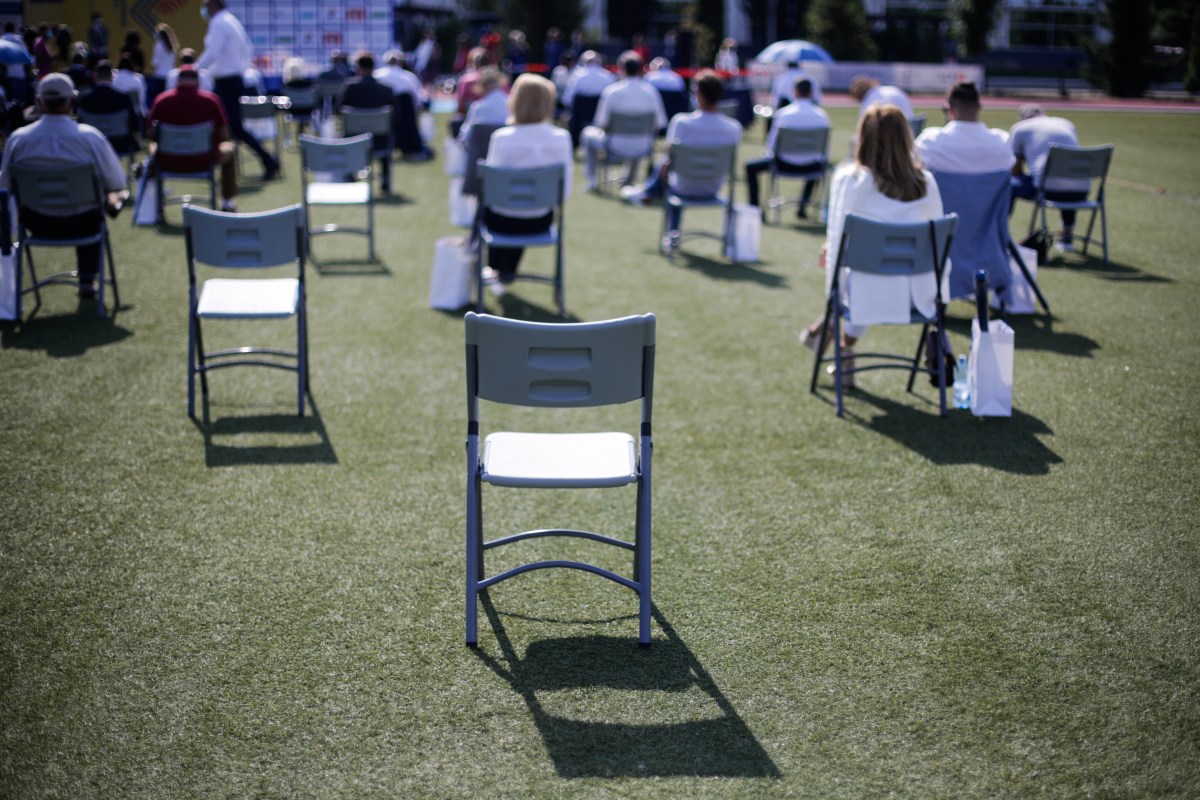Audiences are more likely to feel comfortable returning to events once Australia has reached vaccination rates of at least 80%, according to the latest Patternmakers October ‘Pulse Check’ data analysis.
Of the 12,500 people surveyed, 81% said proof of vaccination requirements would encourage their attendance at venues, with some noting they would not attend events unless such requirements are in place. This information suggests that proof of vaccination will be an important tool in the transition to ‘COVID-normal’.
The Audience Outlook Monitor is delivered in an Australian-first partnership between seven government agencies and two research organisations, Patternmakers (Sydney) and WolfBrown (USA). Data has been collected in three phases throughout the COVID-19 pandemic.
Since the latest data was collected in July, the October ‘pulse check’ survey saw respondents from previous phases share how confident they feel returning to cultural events.
KEY TAKEAWAYS:
- 43% of audiences in outbreak affected states/territories are ‘ready to attend’
- 69% would be encouraged to attend with mandatory mask policies for audiences aged 12+
- 74% will be very comfortable at museum/galleries in an 80% vaccinated COVID-safe scenario
- 61% will be very comfortable at large theatres in an 80% vaccinated COVID-safe scenario
UNCERTAINTY ABOUT THE ‘NEW NORMAL’
The survey also found that participants were uncertain about the ‘new normal’ of living with COVID-19. Such hesitancy is attributed to concerns about venues reopening to the unvaccinated and questions about the ways organisations will manage risks.
Outbreaks continue in NSW, ACT and VIC, and audiences in these areas are slightly more risk-averse than they were July. Despite NSW easing restrictions earlier this week, only 46% of respondents say they are are ready to attend as soon as permitted.
Read more: Understanding Audiences in a Pandemic
Across the rest of Australia, audiences are largely ready and willing to attend events (74%, up from 69% in July). Patternmakers predict that audiences’ readiness to attend is likely to change rapidly in the coming months and will vary from venue to venue.
AUDIENCES VALUE VACCINATION PASSPORTS
Although 96% of participants were partially or fully vaccinated, many were conscious that risks of transmission remain.
Many noted that they want to see strict measures in place to keep audiences and staff safe. This affirms the general belief that clear and consistent COVID-safe measures are key to preventing further disruptions.
Venues requiring proof of vaccination was identified as the number one priority, with eight in 10 audience members saying they would be more likely to attend if proof of vaccination was required at entry.
A small number of respondents that said vaccination requirements might create further division within the community.
Read: Why vaccine passports are the future of live performance
Mandatory mask-wearing continues to encourage audience attendance. However, the October Pulse report did note that there are some who are eager to see this measure replaced by other safety protocols.
In terms of capacity limits, audience members believe this is placing undue financial pressure on arts venues, and don’t believe they are as effective as masks and vaccine passports. This sentiment has been voiced by a number of organisations struggling with capacity limits.
Reflecting this, the report showed that capacity limits were less likely to encourage audiences returning, with only 55% of audiences encouraged by venues limiting capacity to 75%.
HOW ORGANISATIONS CAN PREPARE
The data indicates that views on the best way forward vary and that organisations need to prepare for vocal objections to COVID-safe precautions. As venues and organisations continue to adapt and find new ways of working, many unknowns still exist.
Following the research, the Pulse Report provided a number of recommendations on how organisations can move forward. These include:
- Prepare for increased pressure from audiences: The data quantifies the case for vaccine passports; however a diversity of views remains and organisations should prepare for a period of vocal objections.
- Take caution opening to the unvaccinated: Audience members showed reluctance in returning if venues open up to the unvaccinated in December as planned. IThis can be expected to affect confidence among arts audiences.
- Keep staff informed: The research suggests front-of-house staff may bear the brunt of passport controversy and measures need to be taken to ensure staff are supported, informed and safe.
- It will take time: There will be a period of adjustment among audiences as they define their ‘dealbreakers.’ Organisations and venues should expect fluctuation in attitudes over the next few months.
Visit the Patternmakers website for the full National ‘Pulse Check’ and the NSW ‘Pulse Check.’





